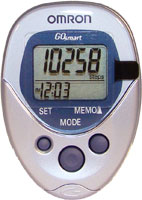Stress is an inevitable part of everyday life. Un-addressed stress may lead to other health issues. Stress management is essential, especially for people with diabetes. Stress can raise blood sugar and blood pressure causing serious health complications.
- People have a fight-or-flight response to stress. Stress creates an adrenaline rush in the body. This causes blood sugar to rise rapidly. Ongoing stress is problematic for people with diabetes who need to control their blood sugar levels.
- Stress can be physical or emotional. Acute stress is the response to an unexpected noise, scary movie, surgery, electric shock, physical illness or other trauma. Chronic stress is ongoing such as everyday work hassles, social isolation or sleep deprivation.
- Catecholamines are produced by the adrenal glands located on top of the kidneys. During times of stress, catecholamines are released into the blood. Adrenaline is an example of a catecholamine. When catecholamines are released into the blood, sugar levels soar as well as blood pressure. Using an Omron blood pressure monitor may help you keep track of your blood pressure response.
- Cortisol is also released by the adrenal glands. This stress hormone is secreted in response to stresses such as injury, digestive disturbances and inflammation. Raised levels of cortisol decrease the metabolism of glucose. Metabolism and mobilization of fats increase. Ultimately, higher blood glucose levels and increased blood fat levels contribute toward insulin resistance.
- Stress causes health issues that further aggravate diabetes. Health problems caused by stress include high blood pressure, heart disease, bladder infection, vaginal yeast infection, fatigue and indigestion.
Stress management is the key to minimize catecholamines and cortisol and lower blood sugar levels. There are several simple ways to reduce daily stress to maintain healthier blood glucose levels.
- Going for a simple walk while using an Omron pedometer can help use stress hormones and decrease them while gaining some fitness.
- Deep breathing exercises are an effective way to reduce stress. Breathing deeply sends a message to the brain to relax and calm down. The message then travels to the body to reduce the heart rate.
- Meditation is a fast, easy way to lower stress and can be done anywhere. Various simple techniques are used to focus attention away from stress, eliminate information overload and calm down. Forms of meditation include transcendental meditation, yoga, guided imagery and tai chi.
- Transcendental meditation involves focusing on a mantra, which is a word, sound or phrase. Thoughts are eliminated from the mind for a sense of stillness and calm.
- Yoga uses postures and controlled breathing to promote a calm state of mind and flexible body through concentration and balance.
- With guided imagery, a person uses mental images of situations or places they find relaxing to regain calmness. This technique is also referred to as visualization.
- Tai chi is a gentle form of Chinese martial arts. A slow series of movements or postures are gracefully done with deep breathing techniques.
People with diabetes may not be able to completely eliminate everyday stress but they can take control of it. Using stress management techniques lowers blood sugar for a healthier, happier existence.

 Stress management is the key to minimize catecholamines and cortisol and lower blood sugar levels. There are several simple ways to reduce daily stress to maintain healthier blood glucose levels.
Stress management is the key to minimize catecholamines and cortisol and lower blood sugar levels. There are several simple ways to reduce daily stress to maintain healthier blood glucose levels.











Leave A Comment